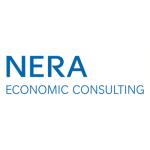Inter-company licensing arrangements are often challenged by tax authorities worldwide. Those in the country of the licensor might complain that the licence rate is not high enough, while those in the country of the licensees often complain that a licence rate is too high. The latter group was recently strengthened by the new OECD guidelines that introduced the DEMPE concept: entities should earn profits in line with their contributions in terms of the development, enhancement, maintenance, protection, and exploitation (DEMPE) of intangibles.
In practice, this concept has meant that tax authorities in local jurisdictions of the licensees often complain that their entities are paying licence fees despite making some form of contribution to the intangible, usually by some local enhancement or maintenance. This is quite typical as, for example, local entities license a brand from their central group headquarters but make some adaptions for their local market (an enhancement) or incur the marketing spending to keep the brand relevant for customers (a form of maintenance).
How can taxpayers react to such a claim and show that their licence rates are arm's length and should therefore not be adjusted? The traditional best practice approach has been to use a database search of third-party licensing contracts. This has the advantage of yielding a relatively straightforward answer, like a specific royalty expressed as a percentage of sales that would be appropriate. On the other hand, the challenge with benchmarking searches is to find truly comparable intangibles. As acknowledged by the OECD, circumstances related to intra-group intangible transactions are normally pretty unique as every profit maximising multinational tries to develop and market its intangibles as USPs. This suggests that publicly available information on third-party licence arrangements usually provides only poor benchmarking evidence for arm's-length pricing.
The DEMPE concept provides a route to improve comparability, since taxpayers now also have to demonstrate how local enhancement or maintenance of intangibles figures into the comparison between the intra-group licensing and the database agreements. The terms and conditions in the agreements between independent parties can provide important insights for this analysis. Third parties are usually rather explicit about responsibilities, budgets and other obligations of the counterparties in their agreements. Therefore, paragraphs outlining the obligations of the licensors and licensee can be analysed.
To improve comparability, one can try to directly include the DEMPE review into the search and limit the dataset to those agreements where the third-party licensor and licensee perform approximately the same responsibilities as within the company. For example, if the group-internal transaction assigns the responsibility for local marketing expenditure to the licensee, one could exclude all those third-party agreements, where this responsibility is either left open or assigned to the licensor.
An alternative is to rely on a wider array of contracts to make the impact of varying DEMPE functions more explicit through statistical analysis. The advantage of this approach is that it enables a wider range of third-party contracts, which increases reliability. It also allows taxpayers to reflect regional differences between their subsidiaries to a stronger degree. For example, we found through a regression analysis that for a certain class of marketing intangibles, the licence rate varied between 2% and 3.5%, depending on how strongly the licensor was involved in local DEMPE contributions. This allowed the taxpayer to set three different licence rates for its subsidiaries, depending on their exact profiles.
We believe that in many practical cases, the results of the adjusted benchmarking analysis should be rooted in a value chain analysis and may often be corroborated by a profit split analysis. Overall, the proper reflection of local contributions to intangibles – be they marketing or technical intangibles – allows taxpayers to pre-empt or counter claims by tax authorities that their local DEMPE contributions are not considered.
NERA Economic Consulting
T: +49 69 710 447 502 and +49 69 710 447 508
E: yves.herve@nera.com and philip.de.homont@nera.com
W: www.nera.com













